 At the end of the 1980’s, as director of the Sarajevo Obala Art Center <b>Mirsad Purivatra</b> oversaw the works of numerous theater productions. Many of them, including Tatoo Theatre and Moonplay, were featured in theatre festivals in Edinburgh, Paris, Toronto, New York, Montreal, and London. During the war in Bosnia and Herzegovina, the Center organized a great number of exhibitions by B&H; authors that were shown around the world and in Sarajevo. Obala hosted such international artists as Christian Boltanski, Annie Leibowitz, Sophie Ristelhueber, and Peter Waldegg. In 1995, Obala established the Sarajevo Film Festival, which in 12
At the end of the 1980’s, as director of the Sarajevo Obala Art Center <b>Mirsad Purivatra</b> oversaw the works of numerous theater productions. Many of them, including Tatoo Theatre and Moonplay, were featured in theatre festivals in Edinburgh, Paris, Toronto, New York, Montreal, and London. During the war in Bosnia and Herzegovina, the Center organized a great number of exhibitions by B&H; authors that were shown around the world and in Sarajevo. Obala hosted such international artists as Christian Boltanski, Annie Leibowitz, Sophie Ristelhueber, and Peter Waldegg. In 1995, Obala established the Sarajevo Film Festival, which in 12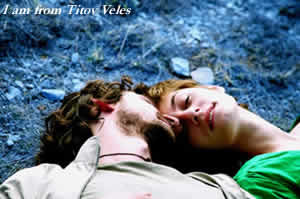 years has grown to be one of the most influental film festivals in southeast Europe. Today, working full time as the Sarajevo Film Festival Director, Purivatra teaches Production at the Sarajevo Academy of Performing Arts. He has also served as Director of Bosnia and Herzegovina Radio and Television (1998-2000), and General Director of the B&H; branch of McCann Erickson marketing agency (2000-2004).
years has grown to be one of the most influental film festivals in southeast Europe. Today, working full time as the Sarajevo Film Festival Director, Purivatra teaches Production at the Sarajevo Academy of Performing Arts. He has also served as Director of Bosnia and Herzegovina Radio and Television (1998-2000), and General Director of the B&H; branch of McCann Erickson marketing agency (2000-2004).
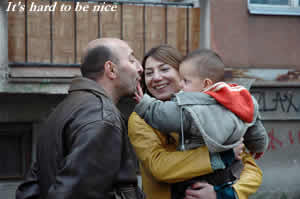 Cinema Without Borders: Please tell us a background of the Sarajevo Film Festival and how you became involved with it.
Cinema Without Borders: Please tell us a background of the Sarajevo Film Festival and how you became involved with it.
Mirsad Purivatra: During the siege of Sarajevo in ’95, a group of us that were linked with the cultural center Obala decided to launch our own film festival. During the war and before the war, we had the cultural center with numerous film activities including retrospectives and short film programs. During the war, we wanted to continue these activities and wanted to give a chance to the people in the city under siege to continue the habit of going to the cinema. It was quite difficult, but we had great support from all our film colleagues and professionals from around the world. For example in Sarajevo we had a visit from Marco Müller, who is now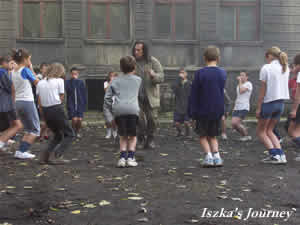 the director of the Venice Film Festival. They brought the films from their festivals and we showed the films. Speaking with them and film lovers in Sarajevo, we decided to launch Sarajevo Film Festival. We wish to represent Bosnian, regional, and international films in Sarajevo. During the Siege of Sarajevo in ’95 we launched the first one, and I am very happy to say that I am one of the founders and now, ten years later, we have one of the most prestigious and influential film festivals in Europe.
the director of the Venice Film Festival. They brought the films from their festivals and we showed the films. Speaking with them and film lovers in Sarajevo, we decided to launch Sarajevo Film Festival. We wish to represent Bosnian, regional, and international films in Sarajevo. During the Siege of Sarajevo in ’95 we launched the first one, and I am very happy to say that I am one of the founders and now, ten years later, we have one of the most prestigious and influential film festivals in Europe. 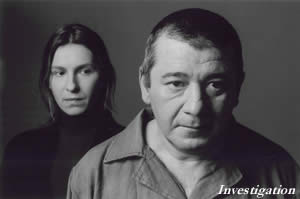 CWB: What different categories are in the festivals? How is the festival organized?
CWB: What different categories are in the festivals? How is the festival organized?
Mirsad: The Sarajevo film festival is organized in three different sections. We have programming, which is where we have different sections representing different international films. Then we have an industry section, which is the most important part involving the co-production market through Cinelink. The third part is the education program called The Sarajevo Talent Campus realized together with Berlinale Talent Campus and Berlin International Film Festival. In the section programming, we have 12 different programs; it is the international film concept with the focus on the region. Our competition program is strictly reserved for regional films from 15 countries; films come from Austria, Slovenia, Hungary on the West; to Greece, Turkey, Cyprus, Malta on the South; and Serbia, Montenegro, Bulgaria, Romania and Albania and other countries in the Balkans as well. We have features, shorts, and documentary features in the competition for the best films. We have other programs including the “Tribute to” program where we are honor some of the best international film directors. We also have a large children and teenage program. Every year we have 40,000 children and teenagers watching the films during the Sarajevo film festival.
CWB: That’s very nice, actually. Besides the countries that attend in the competitions (15 countries is actually a large number), are films from other countries screened at the festival?
Mirsad: Absolutely. We have the choice from a selection of the best films in the world. We can see films from America, Asia, Europe, Australia, and Africa. I feel like we are covering the whole world. In the end, we have almost 200 films in total to be presented during the Sarajevo film festival. Feature films, short films, and documentaries are all included.
CWB: Are there film directors that will be coming and attending the festival?
Mirsad: Yeah, that is one of the most important parts of the festival. Seventy percent of the films screen with the presence of the filmmakers. We are doing our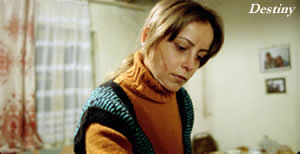 best to have a film director or at least an actor who could join the screening and have a Q&A; session. That is one of the reasons why the festival is more popular every year. The audience is now more than 100,000 at the festival every year. I am happy because they have many chances to meet directors, producers, and actors of the films in Sarajevo. This year, our guests are Fatih Akin, the German-born director of Turkish descent, Juliette Binoche is an Oscar-awarded French actress, Steve Buscemi is one of today’s most renowned actors, Sam Garbarski is a German director, Jasmila Žbanić winner of the Berlin International Film Festival Golden Bear Award for the film GRBAVICA, Cristian Mungiu director of 4 MONTHS, 3 WEEKS AND 2 DAYS, Miki Manojlović, that has performed in more than 80 films, Alexandra Maria Lara, young German actress of Romanian descent, Alexander Payne, the American film director, Jeremy Irons and Sam Riley, British actors, Ulrich Seidl is the director of numerous award-winning documentaries such as JESUS, YOU KNOW, MODELS, Danis Tanovic, the Bosnian film director and Anton Corbijn, the renowned Dutch photographer
best to have a film director or at least an actor who could join the screening and have a Q&A; session. That is one of the reasons why the festival is more popular every year. The audience is now more than 100,000 at the festival every year. I am happy because they have many chances to meet directors, producers, and actors of the films in Sarajevo. This year, our guests are Fatih Akin, the German-born director of Turkish descent, Juliette Binoche is an Oscar-awarded French actress, Steve Buscemi is one of today’s most renowned actors, Sam Garbarski is a German director, Jasmila Žbanić winner of the Berlin International Film Festival Golden Bear Award for the film GRBAVICA, Cristian Mungiu director of 4 MONTHS, 3 WEEKS AND 2 DAYS, Miki Manojlović, that has performed in more than 80 films, Alexandra Maria Lara, young German actress of Romanian descent, Alexander Payne, the American film director, Jeremy Irons and Sam Riley, British actors, Ulrich Seidl is the director of numerous award-winning documentaries such as JESUS, YOU KNOW, MODELS, Danis Tanovic, the Bosnian film director and Anton Corbijn, the renowned Dutch photographer
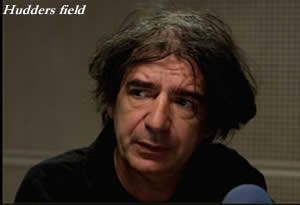 CWB: What are some of the other events at the festival? Are there any seminars or similar events that occur with the screenings?
CWB: What are some of the other events at the festival? Are there any seminars or similar events that occur with the screenings?
Mirsad: One of the most important activities in our festival is the industry section. In a part of the industry section we have script workshop and we have a presentation of the best projects from the region to the producers from the TV stations while coming to invest money in regional production. As a part of this industry there are a lot of workshops and lectures. This year we have new education. We are very happy to say that young filmmakers from the region will have a chance to meet the guests that I mentioned before. They will give lectures and will have workshops where they give lessons and will do small projects together.
lectures and will have workshops where they give lessons and will do small projects together.
CWB: Is there any specific movie—I know that as the festival director, you might not want to mention one movie over others—but is there any film that you think will be received exceptionally well at the 2007 Sarajevo Film Festival?
Mirsad: I think that we have a really strong line-up in our competition. Practically, what we are doing as a part of our competition program is to present international and regional premiers of the best films from the region. This year, we are very happy to say that we will have some great premieres. I am quite sure that films from 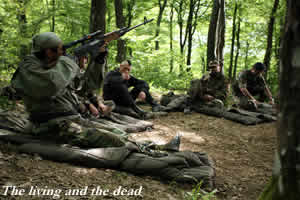 Bosnia, Croatia, Serbia, and Turkey will be a really great challenge for all film festival directors to select for festivals. Some of them will travel all around the world and I think the line-up with the ten titles that we have is very strong. For me it is difficult for me to choose. I think if you go to our website, www.sff.ba , will discover a new generation of the regional filmmakers and many of them, I think, will become stars in the next year for the film industry.
Bosnia, Croatia, Serbia, and Turkey will be a really great challenge for all film festival directors to select for festivals. Some of them will travel all around the world and I think the line-up with the ten titles that we have is very strong. For me it is difficult for me to choose. I think if you go to our website, www.sff.ba , will discover a new generation of the regional filmmakers and many of them, I think, will become stars in the next year for the film industry.
CWB: How do you see the future of the Sarajevo film festival?
Mirsad: The festival is a long time project and I would say that in the next 3 or 4 few years, we will like to improve the quality of our industry section. We are quite satisfied with the programming and the list of the guests, but I think that the next phase of the Sarajevo Festival is to create a stronger platform for film professionals from the region and put them in the network of the European and International film industry. I think that’s one of our tasks and, definitely, we will do our best to discover and promote regional stars, filmmakers, and film professionals; and create stronger links with the European network. That’s the main thing that Sarajevo can be: a platform for them to meet each other and initiate new projects.
* * *
Amra Baksic ÄŒamo, born in Sarajevo 1970, graduated from Comparative litereture. Since 1995 she has been involved in new media and video production in the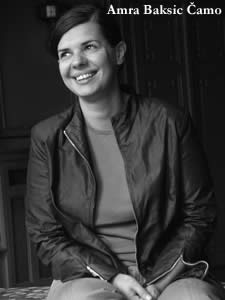 region. From 1998, she works in Sarajevo Centar for Contemporary Arts. She is one of the funders of pro.ba, independet film, video and new media production from Sarajevo and part of the Center. She is a coordinator and author of many SCCA projects, has produced numerious short film ans videos, documentaries and tv program. For five years she is main coordinator for CineLink, regional coproduction market and script development project of Sarajevo Film Festival.
region. From 1998, she works in Sarajevo Centar for Contemporary Arts. She is one of the funders of pro.ba, independet film, video and new media production from Sarajevo and part of the Center. She is a coordinator and author of many SCCA projects, has produced numerious short film ans videos, documentaries and tv program. For five years she is main coordinator for CineLink, regional coproduction market and script development project of Sarajevo Film Festival.
Amra has produced many short films and videos, TV programs and two feature films. Short First Dead Experience by Aida 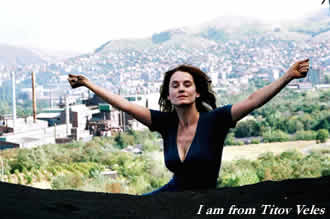 Begic premiered in Cannes 2001, in Cinefondation, feature documentary Borderline Lovers by Miroslav Mandi premiered in Locarno Video Competition 2005, fiction feature by Faruk LonÄarević Mum and Dad premiered in Sarajevo and Rotterdam 2006, and this year shortt What do I know by Å ejla Kamerić and Timur Makarević is selected for Venice Corto Cortissimo.
Begic premiered in Cannes 2001, in Cinefondation, feature documentary Borderline Lovers by Miroslav Mandi premiered in Locarno Video Competition 2005, fiction feature by Faruk LonÄarević Mum and Dad premiered in Sarajevo and Rotterdam 2006, and this year shortt What do I know by Å ejla Kamerić and Timur Makarević is selected for Venice Corto Cortissimo.
CWB: Amra, Please tell us a little about yourself and your involvement with the Sarajevo International Film Festival.
Amra Bakšić Čamo: I started about eight years ago and I used to run the programming section of experimental works and video in Sarajevo from the region. Five years ago, I was invited by our director, Mirsad Purivatra, to start working on something called Cinelink, which is a co-production market. We select projects during the year and help with script development and project development training. Then we put them on the market in Sarajevo with one on one meetings with industry professionals from the region and around the world. We are a regional festival but we are trying to develop a showcase of films to also be involved in projects for something that will come out of this region.
CWB: This is interesting because Sarajevo is not just a festival; it helps filmmakers in producing their projects. In detail, how does this work?
Amra: We are trying to structure it in a way to answer the needs of a producer. I have experience with this matter because I am a producer, myself. As a producer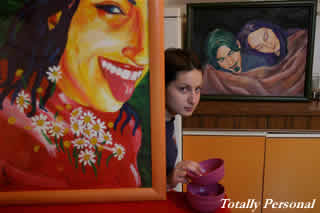 from Bosnia, I knew all of my problems as a producer and I was designing it not only to address my problems, but to see what is common in all the countries in the region for all producers. I wanted to know the needs of the authors—meaning the writers and directors—and then to try to address them through the development projects. That means that we are publishing a public call for the project which aided fiction films in the development phase. They need to have a script and then they can apply. Then our selection process involves choosing projects based on different criteria. We are receiving up to forty-five applications
from Bosnia, I knew all of my problems as a producer and I was designing it not only to address my problems, but to see what is common in all the countries in the region for all producers. I wanted to know the needs of the authors—meaning the writers and directors—and then to try to address them through the development projects. That means that we are publishing a public call for the project which aided fiction films in the development phase. They need to have a script and then they can apply. Then our selection process involves choosing projects based on different criteria. We are receiving up to forty-five applications 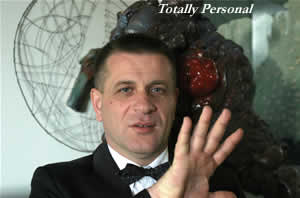 per year, and from the films, which come from 12-13 countries, we are selecting 10-15 projects and then creators of those projects are invited to come to Sarajevo twice. We are bringing script developers to work with them on a one-on-one basis. We are then having market experts and producing experts analyze the projects and to help producers to prepare. It is designed like this because these are the specific needs of the people who are producing now in the region. Even if you have good ideas and are experienced, it can sometimes be difficult to finish your project and make it for international audiences. We are trying to work on films that are devoted to the regional audience. I don’t think that we will ever work on films that are only for national, domestic audiences of every other country in the Balkan region. When this development is done, and they have done the workshops in Sarajevo they will come to the Sarajevo Film Festival. They will then come to the co-production market, and we will have
per year, and from the films, which come from 12-13 countries, we are selecting 10-15 projects and then creators of those projects are invited to come to Sarajevo twice. We are bringing script developers to work with them on a one-on-one basis. We are then having market experts and producing experts analyze the projects and to help producers to prepare. It is designed like this because these are the specific needs of the people who are producing now in the region. Even if you have good ideas and are experienced, it can sometimes be difficult to finish your project and make it for international audiences. We are trying to work on films that are devoted to the regional audience. I don’t think that we will ever work on films that are only for national, domestic audiences of every other country in the Balkan region. When this development is done, and they have done the workshops in Sarajevo they will come to the Sarajevo Film Festival. They will then come to the co-production market, and we will have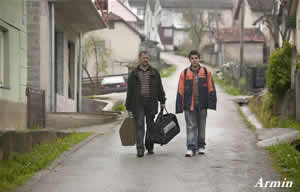 250-300 guests that are industry professionals from the region, as well as Europe. They are producers, agents, distributors, and TV editors. They can book a meeting with one or several of the projects and can meet them in 25 minutes and tell them what they think about the project and whether they would like to continue talking and eventually sign a contract or some kind of a sales memo. That is the way it operates, in short.
250-300 guests that are industry professionals from the region, as well as Europe. They are producers, agents, distributors, and TV editors. They can book a meeting with one or several of the projects and can meet them in 25 minutes and tell them what they think about the project and whether they would like to continue talking and eventually sign a contract or some kind of a sales memo. That is the way it operates, in short.
CWB: How many days does the festival run each year?
Amra: The festival always starts in the third week of August, this time it’s on a Friday. It ends on the next Saturday, meaning it is eight days long.
CWB: Are there any awards being given in the festival?
Amra: The festival is giving out many awards. It has a competitions, but it only involves regional films. It starts from Slovenia and it ends in Turkey. They can apply with their films—we are having mostly international premiers and we are also expecting regional premiers in certain cases. This year in our regional program, we have ten films. These films are competing for the Heart of Sarajevo Award—this is the main award of the 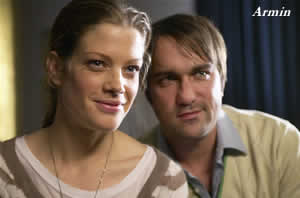 festival. Then there is the Jury Award as well as Best Actor, and Best Actress. We are also giving the Heart of Sarajevo award to people who, in a way, have helped our industry, or helped the festival or Bosnian film makers in a certain way. Last years these awards went to Mike Lee and Marco Müller, the director of the Venice film festival. He is one of the people who helped start the Sarajevo Film Festival, thirteen years ago.
festival. Then there is the Jury Award as well as Best Actor, and Best Actress. We are also giving the Heart of Sarajevo award to people who, in a way, have helped our industry, or helped the festival or Bosnian film makers in a certain way. Last years these awards went to Mike Lee and Marco Müller, the director of the Venice film festival. He is one of the people who helped start the Sarajevo Film Festival, thirteen years ago.
CWB: In order to run your own project at the Sarajevo Film Festival, do you attend other festivals?
Amra: I think that we are the ones who are traveling a lot—it is a necessity. You want to meet the artists from the region and select the best one. You have to see the films and know the producers and your colleagues from all throughout Europe. We are going to all the major festivals in Europe, and some of us have traveled to other international film festivals such as Tribeca and Sundance.

